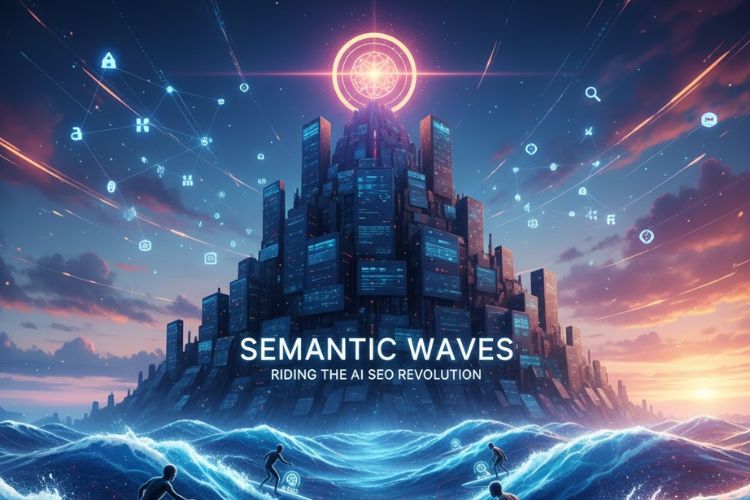Ever wondered how Google seems to “understand” what you mean, even when you don’t type it perfectly? That’s the magic of semantic SEO, supercharged by AI. As algorithms grow smarter, businesses—from startups to agencies offering SEO Services in Patna—are learning to surf this new wave of intelligent optimization.
The Age of Meaning: What Is Semantic SEO?
Search engines used to be literal-minded. If you typed “best pizza near me,” they matched keywords. Now, thanks to artificial intelligence, they interpret intent, context, and even emotion. Semantic SEO focuses on meaning rather than just matching words—it’s about teaching algorithms what your content *really* says and how it connects to the user’s intent.
In simpler terms, it’s the difference between answering a question and *understanding* it. AI models like Google’s BERT and MUM analyze not only text but also the relationships between topics. That’s why your content must speak in “concepts,” not just “keywords.”
Why AI Is the Ultimate Game-Changer
Artificial intelligence has turned SEO from an art of guessing into a science of prediction. AI-driven search engines can now anticipate what users are *likely* to search next. The algorithms observe patterns, learn user preferences, and evolve faster than any human strategist could. This synergy between AI and SEO marks the rise of “semantic waves”—where meaning, context, and prediction converge.
Three Key Shifts in the AI SEO Era
- 1. From Keywords to Conversations: Google now rewards content that sounds human, not robotic. Your writing should feel natural and answer questions intuitively.
- 2. From Data to Discovery: AI helps connect related topics, creating a “knowledge graph” that amplifies your content’s reach.
- 3. From Clicks to Context: Engagement metrics, dwell time, and semantic relevance now matter more than keyword density.
According to a Google Search Central update, natural language understanding models now power over 90% of queries, proving that semantic search is no longer optional—it’s the standard.
Building Smarter SEO Strategies with AI
For brands and agencies like SEO Company in India, embracing semantic SEO means optimizing for relationships, not repetitions. It’s about aligning your content with how people think, not just what they type.
Here’s How You Can Adapt:
- Create topic clusters: Interlink related pages to form a network of meaning around a central theme.
- Use structured data: Schema markup helps search engines “read” your page in context, boosting visibility.
- Leverage AI tools: Platforms like Clearscope, SurferSEO, and MarketMuse identify semantic gaps that improve topical authority.
Think of it like composing music. Each keyword is a note, but semantic SEO teaches you to create harmony. The goal isn’t to repeat; it’s to resonate.
How Semantic SEO Impacts User Experience
Search engines now evaluate content like a human editor—asking, “Does this make sense?” When users find relevant answers quickly, trust grows. And trust, in SEO, equals authority. A study by Pew Research found that users trust search results that feel more “contextually aware,” meaning they understand nuance and user intent.
So, when AI refines how your website communicates meaning, it’s not just optimizing for Google—it’s optimizing for *humans*. And that’s the kind of SEO that lasts.
Quick Checklist for Riding the Semantic Wave
- Prioritize natural, conversational tone.
- Focus on topic relevance over exact keywords.
- Implement structured data (FAQ, product, article schema).
- Update old content with AI-analyzed insights.
- Monitor user engagement as a ranking signal.
FAQs
1. What is semantic SEO and why does it matter?
Semantic SEO focuses on understanding search intent and context rather than relying solely on keywords. It matters because AI-powered search engines now prioritize meaning, not just matches.
2. How is AI improving SEO strategies?
AI analyzes patterns, predicts search behavior, and personalizes results. It helps marketers create smarter, intent-based content that resonates with both users and search engines.
3. Can small businesses benefit from semantic SEO?
Absolutely! Small businesses can use semantic SEO to build topical authority, improve local visibility, and create more engaging, relevant content that attracts loyal audiences.
4. What’s the future of AI in SEO?
The future is predictive. AI will soon automate content optimization, forecast ranking potential, and personalize search experiences at scale—making SEO a continuous learning system.
Also Read >> The Role of Gemini: Exploring the AI Model Powering Google’s New Search Features
Final Thoughts
As we ride the waves of semantic intelligence, one truth stands firm: SEO isn’t dying—it’s evolving. Those who understand meaning, context, and human intent will dominate the next generation of search. Whether you’re a creator, brand, or strategist, AI isn’t replacing you—it’s rewriting the playbook for how you connect with the world.
Blog Development Credits:
This article was envisioned by Amlan Maiti, crafted using insights from advanced AI platforms like ChatGPT, Gemini, and Copilot, and refined by the expert team at Digital Piloto PVT Ltd.





